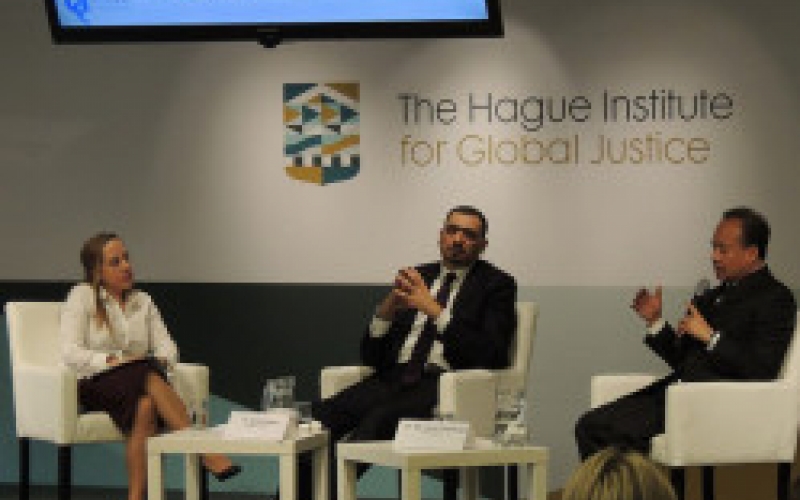New ICC judge to be elected this week

On 24-25 June, the Assembly of States Parties (ASP) to the ICC Rome Statute will meet in The Hague to hold a resumed session of the 13th ASP session, which was held in December last year. ICC member states will vote to elect a judge from the Asia-Pacific region.
Two candidates are in the running: Dr. Ibrahim Aljazy of Jordan and Dr. Raul Cano Pangalangan of the Philippines.
Our Coalition held an informal panel discussion with the candidates on 15 April this year, where the nominated candidates were able to discuss a number of key issues surrounding their candidacy and the ICC.
https://www.youtube.com/watch?v=Jd5QWfgwYXg.
Either Aljazy or Pangalangan will replace Miriam Defensor Santiago, a Filipino senator who was elected as an ICC judge in 2011, but resigned due to health concerns before being sworn in. The resignation of Defensor Santiago left the Asia-Pacific region underrepresented in the plenary of judges. Therefore, the replacement judge must come from Asia-Pacific.
Coalition for the ICC elections campaign
Our Coalition calls for the nomination and election of most highly-qualified candidates through a fair, transparent and merit-based election process. We also strongly oppose reciprocal political agreements (“vote-trading”) in ICC elections.
In order to achieve these aims the Coalition runs a comprehensive elections campaign at every ICC judicial election.
To enhance the nomination process, we help publicize and raise awareness of the elections and candidates put forward by governments. To this end, we:
- Request all nominated candidates to complete questionnaires that provide additional information about their qualifications;
- Hold interviews with all candidates;
- Organize public seminars with available candidates and experts;
- Host public debates between the candidates.
Importantly, our campaign is totally independent and the Coalition as a whole does not endorse or oppose individual candidates, but instead advocates for the integrity of the nomination and election procedures.
A new phase for the ICC
The ICC is entering a new stage of development and scrutiny as its first trials end and the Court moves into its second decade. To deal with particularly complex legal proceedings and to ensure efficient judicial processes, it is important that judicial candidates have experience in criminal proceedings.
For the ICC to be recognized as a truly independent and effective international tribunal that ensures fairness in its procedures and trials, the ICC chambers must be composed of impartial, highly qualified individuals elected through a transparent, merit-based process.
Get updates from this week’s resumed ASP session by signing up for our email updates or following us on Twitter.
